“I think I can see our house from here,” I said.
“Where?” Ellie said.
“There.”
“That’s a medieval tower. Also: we don’t have a house.”
“Oh,” I said, squinting. “Yes. I suppose you’re right.”
Oliver, Ellie, and I were sitting up in the hills above Glendalough, looking down at the ruins of the medieval monastery in the valley below. Crowds of tourists wandered among the buildings, clustering together like ants, pausing every now and again to take selfies in front of the stone buildings.
“I mean, I guess we could live in a medieval tower,” I said. “I don’t think there are any rules against it. Medieval towers were good enough for folks once upon a time, and it’s not like we have too many options at this point.”
“There are definitely rules against it,” Ellie said.
“Are you sure?”
“Pretty sure.”
Our decision to bus to Glendalough was a result of our mounting frustration with our housing search. We’d grown tired of our routine, tired of filling out applications and receiving no response, tired of sharing a hostel with strangers. In particular, I’d developed a supreme distaste for watching our eccentric, suit-wearing, Tesco-loving friend gurgle his way through breakfast and force conversations on people who clearly had no time for him. Oddly enough, though he always wore an impeccably tailored suit, he never seemed to have anywhere to go. I think he just sat by the window all day, watching the remains of his oatmeal congeal in the bottom of his bowl, waiting for the appropriate time to go to bed.
I stared down at the monastery, watching happy people scurry around the ruins. What would it be like, I wondered, to drift from one hour to the next, clinging to connections with people who clearly wished you didn’t exist? Would that count as being homeless?
***
“Killiney?” I said.
“No, no, you’re saying it wrong,” Oliver said. “It’s Kill-INE-ee.”
“Killiney?”
“No, you have to put the emphasis on the middle part.”
“So…Killiney, is what I’m supposed to say.”
We took a taxi to a showing in Killiney the day after our Glendalough trip. The fare for a cab would normally be beyond our means, but Killiney is as far south as a person can travel in Dublin without ending up in Wicklow, so we’d decided to pool our increasingly meager funds to avoid walking. I spent most of the ride with my face smooshed against the window, watching Dublin’s urban core recede into narrow roads winding through hills and fields and forests.
The taxi dropped us off in Killiney Village, a community of three pubs, a church, and a small assortment of corner stores. Tiny cottages with vivid red, green, or yellow doors lined the road, and a network of fields and stone walls stretched to the horizon.
“Huh,” I said. “It’s very, uh, very…”
“Bucolic?” Oliver suggested.
“Yeah,” I said. “That’s a good word for it.”
The showing was in a small brick house at the bottom of Killiney Hill. For once, we were the only visitors, and so we had plenty of peace and quiet to look around. The house had a tiny living room with a fireplace, a modest kitchen looking out onto a trim patch of grass and, upstairs, a bathroom, some bedrooms, and a cupboard. That was it. All in all, it took us ten minutes to see everything and fill out an application. Heading back the way we came, we walked in silence, not saying anything, not wanting to jinx it. After a while, Ellie said she felt good about the place, and Oliver and I were brave enough to agree. Then, we turned around a bend in the road and found ourselves facing the unfurling tongue of the Irish Sea.
***
We moved in a week later. We packed our possessions into suitcases, settled our bill with the hostel, and stood out on the street corner, waiting to hail a cab. It was a strange feeling, leaving the place we’d called home for many days and weeks. The pit of my stomach twisted in on itself, contracting with sudden nostalgia and fear. When I glanced back at the hostel for a last look at its teetering, groaning facade, I saw the man in the suit looking at me through the dining room window. He stood very still, and he held one of his hands halfway up as if he were trying to decide whether or not to wave to me. That was the last I ever saw of him. For all I knew, he might have stayed there for many hours, his hand hovering in empty space, waiting by the window until the lights went out and it was time to go to bed.
It didn’t take long to unpack our things at the Killiney house. We toted our suitcases upstairs, took stock of the space we officially owned, put the kettle on the hob for tea. I stood alone in my new room, staring at the clothes I’d heaped on the floor. Reluctant to begin the process of settling in, I sat beside the window for a while, studying the geography of my new home. Out on the horizon, the Dublin Mountains were hunched beneath the clouds, shouldering the raw weight of the sky. An ocean of mist rolled in off the Irish Sea, tumbling toward Ballybrack and Greystones and Wicklow and all the other towns that lay beyond them. It occurred to me then how many possible homes exist in the world, and what a privilege it is to end up in any one of them. I thought about the man in the suit outlined against the window, looking out at the world as it passed him by.
How strange, I thought as I began to put away my clothes. Yes. How very strange and privileged to end up anywhere at all.
